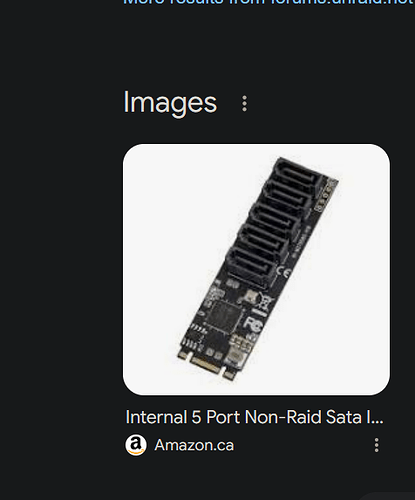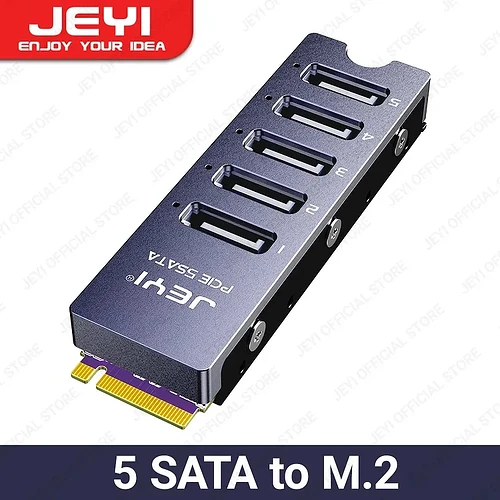Hello everyone,
I have been having an issue with my truenass (system config below) where login screen and ssh access is stuck until I do a power reboot. This has been happening about a week from now. Once system boots up… everyone works fine until it happens again usually about 24 hours later.
When this is happening, all my shares seem to work fine and are accessible. I am just unable to login via GUI or ssh.
I decided to connect the server to my kvm switch and noticed that the console was frozen with the constant error message
Pool 'boot' has encountered an uncorrectable I/O failure and has been suspended.
As usually after a power cycle everything comes back up. I did a config backup and I have spare disk to replace the boot drive. However I did some smartcrt check by running
smartctl -t long /dev/ada3
The result are below
smartctl 7.2 2021-09-14 r5236 [FreeBSD 13.1-RELEASE-p9 amd64] (local build)
Copyright (C) 2002-20, Bruce Allen, Christian Franke,
=== START OF OFFLINE IMMEDIATE AND SELF-TEST SECTION ===
Sending command: "Execute SMART Extended self-test routine immediately in off-line mode".
Drive command "Execute SMART Extended self-test routine immediately in off-line mode" successful.
Testing has begun.
Please wait 10 minutes for test to complete.
Test will complete after Thu Nov 21 08:49:25 2024 WAT
Use smartctl -X to abort test.
root@dune[~]# smartctl -a /dev/ada3
smartctl 7.2 2021-09-14 r5236 [FreeBSD 13.1-RELEASE-p9 amd64] (local build)
Copyright (C) 2002-20, Bruce Allen, Christian Franke,
=== START OF INFORMATION SECTION ===
Model Family: Phison Driven SSDs
Device Model: KINGSTON SA400S37120G
Serial Number: 50026B7784FAD8A9
LU WWN Device Id: 5 0026b7 784fad8a9
Firmware Version: S3E00100
User Capacity: 120,034,123,776 bytes [120 GB]
Sector Size: 512 bytes logical/physical
Rotation Rate: Solid State Device
TRIM Command: Available
Device is: In smartctl database [for details use: -P show]
ATA Version is: ACS-3 T13/2161-D revision 4
SATA Version is: SATA 3.2, 6.0 Gb/s (current: 6.0 Gb/s)
Local Time is: Thu Nov 21 08:52:14 2024 WAT
SMART support is: Available - device has SMART capability.
SMART support is: Enabled
=== START OF READ SMART DATA SECTION ===
SMART overall-health self-assessment test result: PASSED
General SMART Values:
Offline data collection status: (0x02) Offline data collection activity
was completed without error.
Auto Offline Data Collection: Disabled.
Self-test execution status: ( 0) The previous self-test routine completed
without error or no self-test has ever
been run.
Total time to complete Offline
data collection: ( 120) seconds.
Offline data collection
capabilities: (0x11) SMART execute Offline immediate.
No Auto Offline data collection support.
Suspend Offline collection upon new
command.
No Offline surface scan supported.
Self-test supported.
No Conveyance Self-test supported.
No Selective Self-test supported.
SMART capabilities: (0x0002) Does not save SMART data before
entering power-saving mode.
Supports SMART auto save timer.
Error logging capability: (0x01) Error logging supported.
General Purpose Logging supported.
Short self-test routine
recommended polling time: ( 2) minutes.
Extended self-test routine
recommended polling time: ( 10) minutes.
SMART Attributes Data Structure revision number: 1
Vendor Specific SMART Attributes with Thresholds:
ID# ATTRIBUTE_NAME FLAG VALUE WORST THRESH TYPE UPDATED WHEN_FAILED RAW_VALUE
1 Raw_Read_Error_Rate 0x0032 100 100 000 Old_age Always - 100
9 Power_On_Hours 0x0032 100 100 000 Old_age Always - 12061
12 Power_Cycle_Count 0x0032 100 100 000 Old_age Always - 79
148 Unknown_Attribute 0x0000 100 100 000 Old_age Offline - 0
149 Unknown_Attribute 0x0000 100 100 000 Old_age Offline - 0
167 Write_Protect_Mode 0x0000 100 100 000 Old_age Offline - 0
168 SATA_Phy_Error_Count 0x0012 100 100 000 Old_age Always - 261
169 Bad_Block_Rate 0x0000 100 100 000 Old_age Offline - 0
170 Bad_Blk_Ct_Erl/Lat 0x0000 100 100 010 Old_age Offline - 0/0
172 Erase_Fail_Count 0x0032 100 100 000 Old_age Always - 0
173 MaxAvgErase_Ct 0x0000 100 100 000 Old_age Offline - 0
181 Program_Fail_Count 0x0032 100 100 000 Old_age Always - 0
182 Erase_Fail_Count 0x0000 100 100 000 Old_age Offline - 0
187 Reported_Uncorrect 0x0032 100 100 000 Old_age Always - 0
192 Unsafe_Shutdown_Count 0x0012 100 100 000 Old_age Always - 33
194 Temperature_Celsius 0x0022 037 055 000 Old_age Always - 37 (Min/Max 21/55)
196 Reallocated_Event_Count 0x0032 100 100 000 Old_age Always - 0
199 SATA_CRC_Error_Count 0x0032 100 100 000 Old_age Always - 0
218 CRC_Error_Count 0x0032 100 100 000 Old_age Always - 261
231 SSD_Life_Left 0x0000 100 100 000 Old_age Offline - 100
233 Flash_Writes_GiB 0x0032 100 100 000 Old_age Always - 0
241 Lifetime_Writes_GiB 0x0032 100 100 000 Old_age Always - 26
242 Lifetime_Reads_GiB 0x0032 100 100 000 Old_age Always - 412
244 Average_Erase_Count 0x0000 100 100 000 Old_age Offline - 1
245 Max_Erase_Count 0x0000 100 100 000 Old_age Offline - 2
246 Total_Erase_Count 0x0000 100 100 000 Old_age Offline - 1225
SMART Error Log Version: 1
Warning: ATA error count 0 inconsistent with error log pointer 1
ATA Error Count: 0
CR = Command Register [HEX]
FR = Features Register [HEX]
SC = Sector Count Register [HEX]
SN = Sector Number Register [HEX]
CL = Cylinder Low Register [HEX]
CH = Cylinder High Register [HEX]
DH = Device/Head Register [HEX]
DC = Device Command Register [HEX]
ER = Error register [HEX]
ST = Status register [HEX]
Powered_Up_Time is measured from power on, and printed as
DDd+hh:mm:SS.sss where DD=days, hh=hours, mm=minutes,
SS=sec, and sss=millisec. It "wraps" after 49.710 days.
Error 0 occurred at disk power-on lifetime: 0 hours (0 days + 0 hours)
When the command that caused the error occurred, the device was active or idle.
After command completion occurred, registers were:
ER ST SC SN CL CH DH
-- -- -- -- -- -- --
04 51 00 00 00 00 40 Error: ABRT
Commands leading to the command that caused the error were:
CR FR SC SN CL CH DH DC Powered_Up_Time Command/Feature_Name
-- -- -- -- -- -- -- -- ---------------- --------------------
b0 d0 01 00 4f c2 40 08 00:00:00.000 SMART READ DATA
b0 d1 01 01 4f c2 40 08 00:00:00.000 SMART READ ATTRIBUTE THRESHOLDS [OBS-4]
b0 da 00 00 4f c2 40 08 00:00:00.000 SMART RETURN STATUS
b0 d5 01 00 4f c2 40 08 00:00:00.000 SMART READ LOG
b0 d5 01 01 4f c2 40 08 00:00:00.000 SMART READ LOG
Error -1 occurred at disk power-on lifetime: 0 hours (0 days + 0 hours)
When the command that caused the error occurred, the device was active or idle.
After command completion occurred, registers were:
ER ST SC SN CL CH DH
-- -- -- -- -- -- --
04 51 00 00 00 00 40 Error: ABRT
Commands leading to the command that caused the error were:
CR FR SC SN CL CH DH DC Powered_Up_Time Command/Feature_Name
-- -- -- -- -- -- -- -- ---------------- --------------------
b0 d5 01 06 4f c2 40 08 00:00:00.000 SMART READ LOG
b0 da 00 00 4f c2 40 08 00:00:00.000 SMART RETURN STATUS
b0 d0 01 00 4f c2 40 08 00:00:00.000 SMART READ DATA
b0 d5 01 06 4f c2 40 08 00:00:00.000 SMART READ LOG
b0 d5 01 01 4f c2 40 08 00:00:00.000 SMART READ LOG
Error -2 occurred at disk power-on lifetime: 0 hours (0 days + 0 hours)
When the command that caused the error occurred, the device was active or idle.
After command completion occurred, registers were:
ER ST SC SN CL CH DH
-- -- -- -- -- -- --
04 51 00 00 00 00 40 Error: ABRT
Commands leading to the command that caused the error were:
CR FR SC SN CL CH DH DC Powered_Up_Time Command/Feature_Name
-- -- -- -- -- -- -- -- ---------------- --------------------
b0 d5 01 06 4f c2 40 08 00:00:00.000 SMART READ LOG
b0 da 00 00 4f c2 40 08 00:00:00.000 SMART RETURN STATUS
b0 d0 01 00 4f c2 40 08 00:00:00.000 SMART READ DATA
b0 d5 01 06 4f c2 40 08 00:00:00.000 SMART READ LOG
b0 d5 01 01 4f c2 40 08 00:00:00.000 SMART READ LOG
Error -3 occurred at disk power-on lifetime: 0 hours (0 days + 0 hours)
When the command that caused the error occurred, the device was active or idle.
After command completion occurred, registers were:
ER ST SC SN CL CH DH
-- -- -- -- -- -- --
04 51 00 00 00 00 40 Error: ABRT
Commands leading to the command that caused the error were:
CR FR SC SN CL CH DH DC Powered_Up_Time Command/Feature_Name
-- -- -- -- -- -- -- -- ---------------- --------------------
b0 d5 01 06 4f c2 40 08 00:00:00.000 SMART READ LOG
b0 da 00 00 4f c2 40 08 00:00:00.000 SMART RETURN STATUS
b0 d0 01 00 4f c2 40 08 00:00:00.000 SMART READ DATA
b0 d5 01 06 4f c2 40 08 00:00:00.000 SMART READ LOG
b0 d5 01 01 4f c2 40 08 00:00:00.000 SMART READ LOG
Error -4 occurred at disk power-on lifetime: 0 hours (0 days + 0 hours)
When the command that caused the error occurred, the device was active or idle.
After command completion occurred, registers were:
ER ST SC SN CL CH DH
-- -- -- -- -- -- --
04 51 00 00 00 00 40 Error: ABRT
Commands leading to the command that caused the error were:
CR FR SC SN CL CH DH DC Powered_Up_Time Command/Feature_Name
-- -- -- -- -- -- -- -- ---------------- --------------------
b0 d0 01 00 4f c2 40 08 00:00:00.000 SMART READ DATA
b0 d1 01 01 4f c2 40 08 00:00:00.000 SMART READ ATTRIBUTE THRESHOLDS [OBS-4]
b0 da 00 00 4f c2 40 08 00:00:00.000 SMART RETURN STATUS
b0 d5 01 00 4f c2 40 08 00:00:00.000 SMART READ LOG
b0 d5 01 01 4f c2 40 08 00:00:00.000 SMART READ LOG
SMART Self-test log structure revision number 1
Num Test_Description Status Remaining LifeTime(hours) LBA_of_first_error
# 1 Extended offline Completed without error 00% 12061 -
# 2 Extended offline Completed without error 00% 12060 -
Selective Self-tests/Logging not supported
I don’t know what to make of it. I also would appreciate input on how i can further troubleshoot this error.
System config
-
Motherboard make and model
- Asus ROG B550I Gaming
-
CPU make and model
- AMD Ryzen 5 PRO 4650G with Radeon Graphics
-
RAM quantity
- 64GB ECC
-
Hard drives, quantity, model numbers, and RAID configuration, including boot drives
- Boot Drive = 120GB KINGSTON SA400S37120G
-
RAID Config = Z1
-
1 x WD Red Plus - 8TB - WDC WD80EFAX-68LHPN0
-
8 x HGST Deskstar NAS - 8TB - HDN728080ALE604 x
-
Hard disk controllers
- Onboard x 4 Sata
- [SATA HBA - 5 SATA to a M.2 NVMe slot,]
-
Network cards
- Intel i266
- Mellanox MCX311A-XCAT CX311A ConnectX-3 EN 10G Ethernet 10GbE SFP+


